Growing up, we don’t always realise how good we have it.
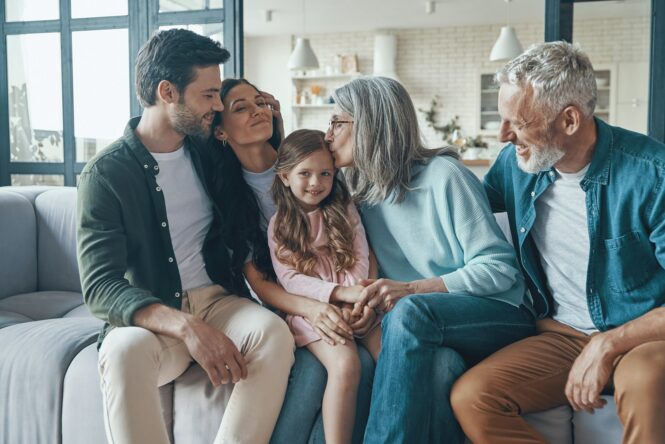
You probably had your fair share of grips as a kid, especially when you didn’t get something you wanted, or you were grounded for bad behaviour. Nevertheless, some childhood experiences were true privileges, both in terms of material comforts and parental support. Whether it was small moments of kindness or the freedom to be yourself, these things made you the person you are in ways you might only appreciate now. In fact, if you had these things as a kid, you probably had it better than you realised at the time.
1. Parents who showed up for you

Having parents who made the effort to attend your school plays, football matches, or dance recitals meant more than you knew at the time. They weren’t just there to clap at the end; they were there to show you that what mattered to you mattered to them. Even if they had work commitments or a busy schedule, they still found ways to support you. That sense of security, knowing someone was always rooting for you, made a bigger impact than you probably realised. Not every child had parents who made time for their events or interests. Some had to experience big moments alone or with little enthusiasm from their family. If yours made the effort, even when they were tired, you were luckier than you thought. Those memories of looking into the crowd and seeing a familiar, encouraging face stayed with you longer than you may have expected.
2. A home where you felt safe
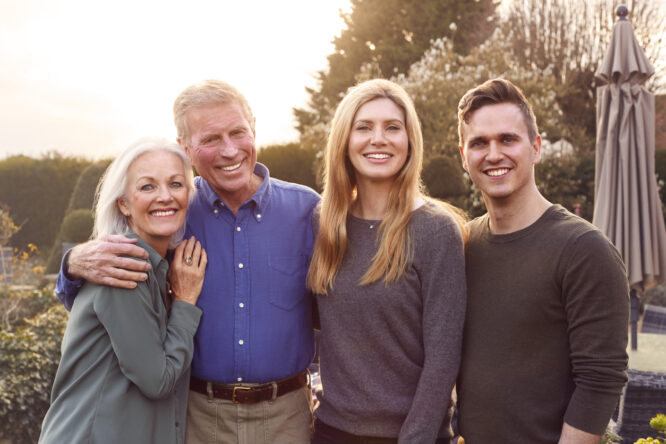
Some kids grew up in homes where they were always on edge, never knowing when the next argument or stressful situation would unfold. If your home was a place where you could relax, be yourself, and never feel afraid, you had something priceless. Being able to walk through the front door and feel relief rather than tension was a privilege that not every child had. A peaceful home environment provided more than physical safety — it offered emotional security too. Many people don’t realise until adulthood how much their childhood home shaped their ability to feel at ease in the world. If you could fall asleep without worry, express yourself without fear, and wake up feeling like you belonged, you were better off than you probably realised. Feeling safe as a child lays the foundation for confidence and trust in later life.
3. A parent who listened instead of just telling you what to do
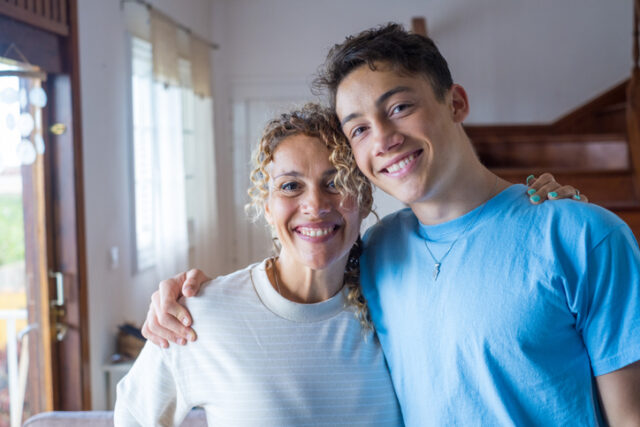
Plenty of kids grew up being told what to do without their feelings ever being considered. But if you had parents who actually listened, it meant your thoughts and emotions were valued. You weren’t just expected to follow orders—you were encouraged to have opinions, ask questions, and express yourself freely. That kind of upbringing helped you grow into someone who felt comfortable speaking up. Feeling heard as a child is a rare and underrated gift. It teaches emotional intelligence, builds self-esteem, and helps you develop strong communication skills. If your parents engaged in real conversations with you instead of just enforcing rules, you were being treated with a level of respect that shaped you for life. It meant you grew up knowing your voice mattered.
4. Family meals that actually felt like family time
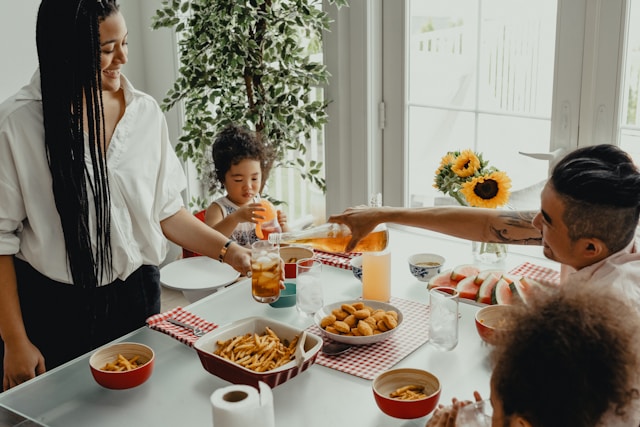
Not every family had the habit of sitting down together for meals. If yours did, you had something special — more than just food on the table. Those meals were moments of connection, where everyone could pause from their day and actually talk. Whether it was over a home-cooked meal or a takeaway on a Friday night, that time together meant more than just filling your stomach. For many kids, mealtimes were the only real chance to bond with their family in a busy world. If you had parents who asked about your day, listened to your stories, and shared their own, those simple moments became core memories. Even if you didn’t think much of it at the time, it gave you a sense of stability and belonging that stayed with you.
5. A parent who encouraged your interests

Some kids were only ever pushed towards things their parents wanted them to do. But if yours supported your interests — whether it was drawing, playing an instrument, or obsessing over dinosaurs — you had something valuable. It meant your passions were nurtured rather than dismissed. Even if your parents didn’t fully understand your hobbies, they still cheered you on and made you feel capable. Encouragement as a child makes a world of difference. If your parents signed you up for classes, watched your performances, or even just let you talk endlessly about what you loved, it showed you that your interests mattered. That kind of support helped you develop confidence in your abilities and a willingness to pursue what excites you.
6. The freedom to make mistakes without fear
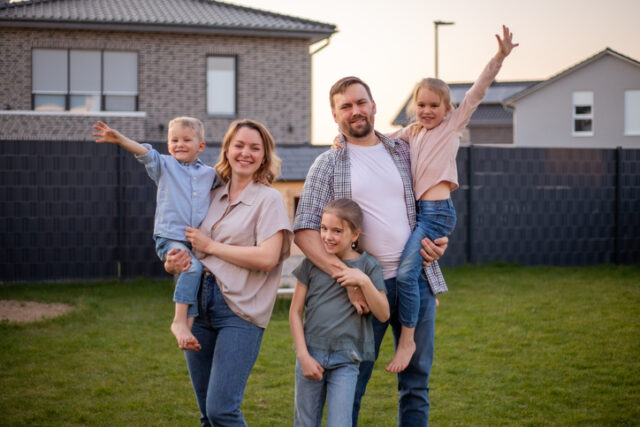
Every child messes up — spilling drinks, getting bad grades, breaking things — but not every child grows up in a home where mistakes are met with patience instead of punishment. If you had parents who corrected you with kindness rather than anger, you had it better than you knew. Learning that mistakes were part of life rather than something to fear shaped how you handled challenges as an adult. When children grow up afraid of making mistakes, they become hesitant, anxious, and overly critical of themselves. But if you were given space to fail, try again, and know that it wasn’t the end of the world, it made you more resilient. That freedom to make errors without shame was a privilege that not everyone had.
7. Parents who let you be a kid

Some children are forced to grow up too fast due to family struggles, responsibilities, or emotional neglect. If your childhood was full of play, imagination, and carefree moments, you had something precious. Climbing trees, making up stories, and believing in magic were all signs that you were allowed to just enjoy being young. If your parents protected that innocence, they gave you something invaluable. Being allowed to be a kid, without the weight of the world on your shoulders, shaped your ability to find joy later in life. If your biggest worries as a kid were what to play next or how long you could stay outside before dinner, you had it better than many. The ability to play freely wasn’t just fun; it was a sign of a safe, loving environment.
8. A parent who apologised when they were wrong
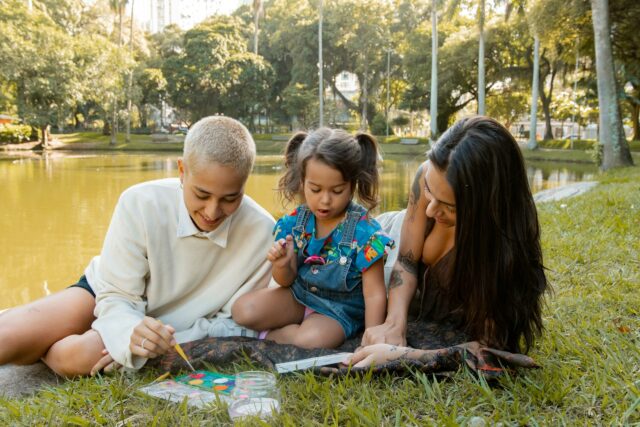 Source: Unsplash
Source: Unsplash Not every child had parents who admitted when they made a mistake. If yours ever apologised, it showed you that respect worked both ways. It wasn’t about undermining authority; it was about teaching accountability. Seeing an adult admit when they were wrong taught you that saying sorry isn’t a weakness, but a strength. Hearing a genuine apology from a parent also made you feel valued. It meant they saw you as a person with real feelings, not just a child who had to obey. That kind of respect and fairness created trust and made it easier for you to develop healthy relationships later in life.
9. A comfortable place to sleep
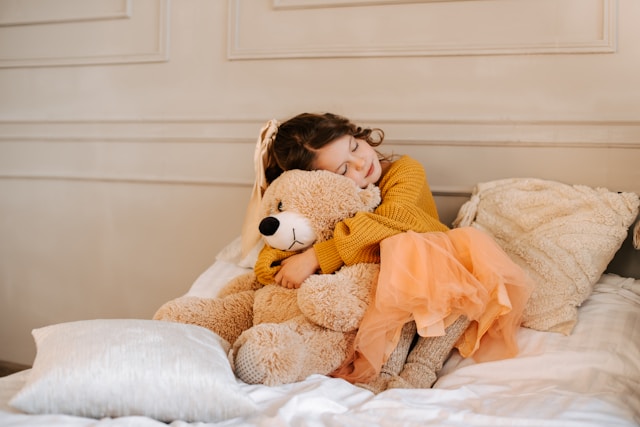
It might not seem like much, but having a warm bed, fresh sheets, and a space that felt like your own was a privilege. Some kids grew up in unstable housing, shared rooms in difficult conditions, or had no control over where they slept. If you always had a cosy bed to crawl into at night, you were luckier than many. Feeling safe and comfortable while you slept wasn’t just a luxury; it was a sign of stability. Good sleep as a child sets the foundation for health, growth, and emotional well-being. If you never had to worry about being too cold, having to share an uncomfortable space, or waking up feeling unsettled, you had a level of comfort that made a difference. A secure and familiar sleeping space gave you the energy to face the next day without unnecessary stress.
10. Access to books, music, or creativity

Whether it was shelves full of books, a radio playing in the background, or art supplies scattered around, having access to creative outlets was something special. If you had parents who encouraged reading, let you paint, or introduced you to music, they were giving you more than just entertainment. Those early creative experiences helped shape the way you saw the world and express yourself. Many kids only had access to the basics, with little encouragement to explore imagination or the arts. But if you had the freedom to get lost in books, experiment with music, or create things with your hands, it gave you a different kind of learning experience. That early exposure to creativity likely helped you develop problem-solving skills, curiosity, and an appreciation for the world around you.
11. Parents who explained things instead of just saying, “Because I said so”

Growing up in a house where rules were enforced without explanation could be frustrating. If your parents took the time to explain why something was important, it meant they respected your ability to understand. Learning the reasons behind rules didn’t just help you follow them — it helped you think critically. It made you more likely to respect boundaries because you understood them, rather than just obeying out of fear. Being raised with explanations rather than orders helped you develop independent thought. Instead of blindly following authority, you learned to ask questions, consider different perspectives, and think for yourself. That kind of upbringing shaped the way you navigate the world as an adult, making you more open-minded and analytical.
12. Being told “I love you” regularly

Some kids grew up in homes where love was expressed through actions, but never spoken aloud. If you had parents who said, “I love you” often, it meant you never had to question how they felt. Hearing those words consistently gave you emotional security, even in moments of doubt. Knowing you were loved, both in words and actions, was something many children never got to experience. Verbal expressions of love provide reassurance that sticks with you into adulthood. If you were raised in a home where affection was openly communicated, you likely find it easier to express your emotions now. Love that is spoken, not just assumed, creates a deep sense of belonging that stays with you for life.
13. The ability to explore without constant fear

Not every child was allowed to roam freely or experience independence outside of their home. If you were given the freedom to ride your bike around the neighbourhood, walk to a friend’s house, or explore the local park, you had something many kids didn’t. You weren’t being neglected; you were being shown trust. Having that level of freedom helped you develop confidence and problem-solving skills from a young age. Some children grew up in environments where they were constantly restricted, either due to safety concerns or overprotective parenting. But if you had space to explore, take small risks, and navigate the world on your own terms, you learned resilience. That kind of freedom in childhood helped shape your ability to handle independence as an adult.
14. A parent who noticed when something was wrong.
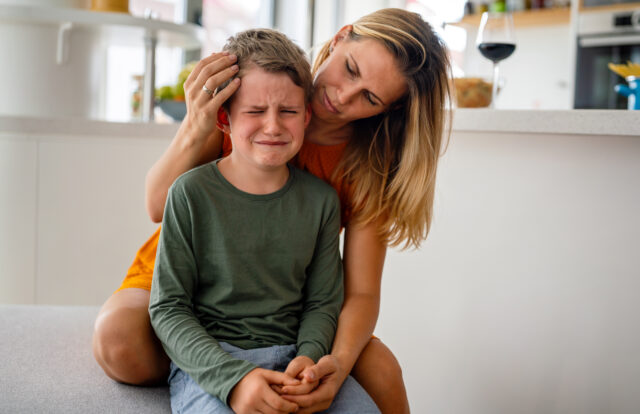
Not every child had someone paying close attention to their emotions and struggles. If your parents noticed when you were feeling down, asked if you were okay, or picked up on changes in your mood, you had something special. Being truly seen as a child makes a huge difference in emotional well-being. It means someone cared enough to check in and make sure you weren’t struggling alone. Having a parent who could sense when you weren’t yourself created a deep sense of security. It showed you that your feelings mattered and that you didn’t have to go through tough times alone. That kind of attentiveness helped shape the way you handle emotions today, making you more likely to check in on other people and recognise when you need support yourself.
15. Memories of being truly happy, even in simple moments.

It wasn’t always about the big things — sometimes, the happiest childhood memories were the simplest. Laughing uncontrollably with friends, staying up late watching a film, or feeling the sun on your face during a carefree summer. If your childhood had moments of pure joy, you had something priceless. Those little experiences shaped your perception of happiness in ways you might not realise. Many people grow up believing happiness is tied to wealth, big achievements, or material success. But if you learned that happiness could be found in small, everyday moments, you were given a rare gift. Those childhood experiences of simple, unfiltered joy helped you develop gratitude and the ability to find contentment in life’s ordinary moments.




